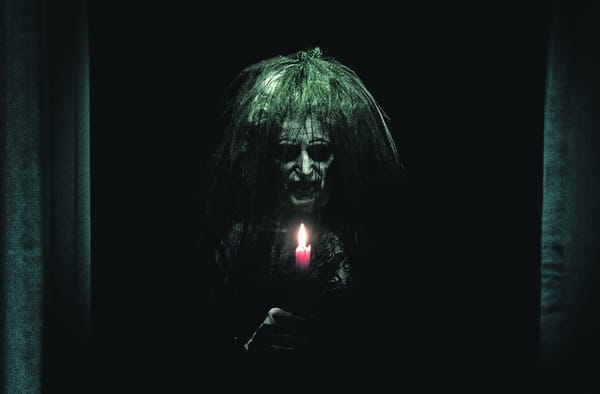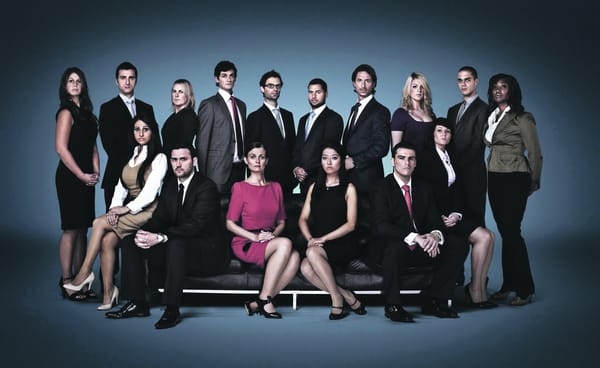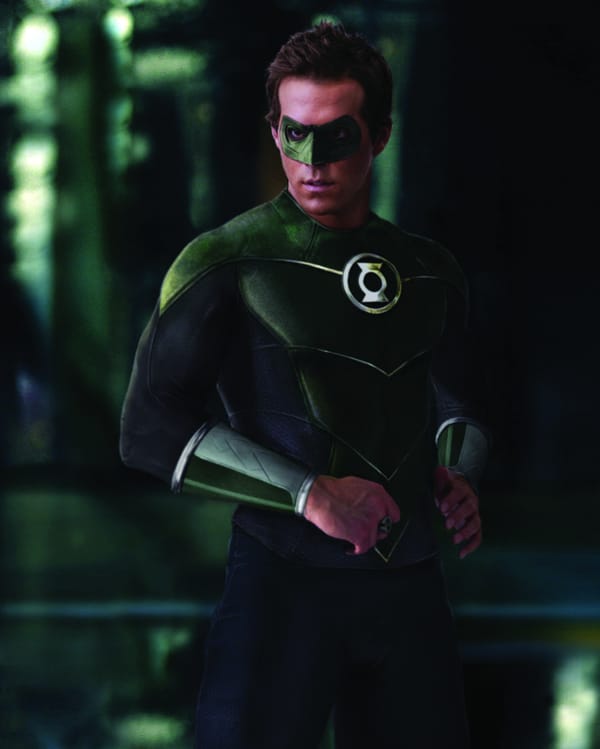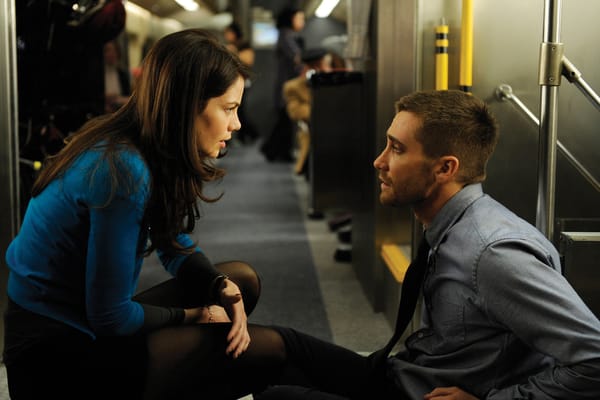A never ending story
Felix takes a look at Neon Genesis Evangelion, the internet-forum-posting geek’s favourite anime series
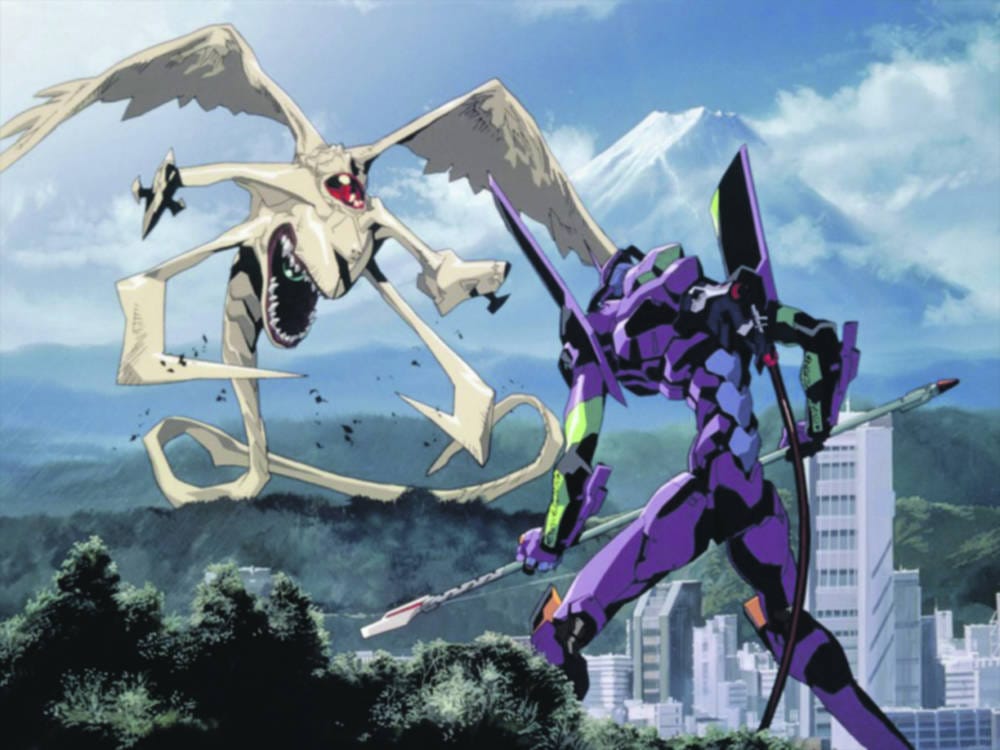
This week I am going to review something a bit different: the landmark 90s anime Neon Genesis Evangelion. This is the first real anime that I have ever seen so I do not really know how well it stands up to other works of this format and am just going to have to review it as work of science fiction.
Evangelion is set in 2015, 15 years after half of the world’s population was killed by the mysterious Second Impact, which the general populace believes to have been a giant meteorite hitting Antarctica. In fact it had something to do with the Angels, giant creatures of unknown origin which have now returned to threaten humanity. They are protected from all conventional and even nuclear weapons by their so-called AT fields and so can only be stopped by the Evangelions, mecha based on the Angels themselves and created by the UN paramilitary organisation NERV. Our protagonist is Shinji Ikari, abandoned by his father, NERV commander Gendo, over ten years ago but now called back as the only person able to pilot Evangelion Unit 1.
Reading the last paragraph back I realise that Evangelion sounds like an amalgamation of the worst anime stereotypes or some cheap Power Rangers knock-off. Believe me, this is not the case. You can tell that this show is something special from the beginning of the first episode with a long atmospheric shot of a flooded city with a line of UN tanks on a high mountain road above it, guns aimed at a large shape moving under the water. The tone of each scene is perfectly judged, helped by a good choice of music and animation which, though admittedly looks a bit dated, is still stunning.
The greatest strength of the series, however, must be its characters. While Misato and Asuka may initially come off as, shallow and simply annoying respectively, we really get to care for them as we learn more about them and see them develop over the course of the series. Some critics’ biggest problem with Evangelion is the constant whining and self-doubt of our protagonist and while it sometimes does get on my nerves I think that it is, for the most part, justified by what he has been through, both before and during the series. Indeed almost everybody in the series is mentally tortured in some way but the series really manages to show how deal with their problems in a way that is both sensitive and interesting.
Any discussion of Evangelion would be remiss if it did not mention the infamous ending
The most divisive element of Evangelion is probably its plot. I have to admit that it is quite over the top, including a heavy use Christian mythology, government conspiracies and a secret plan, called the Human Instrumentality Project, to join together all consciousness. It is probably down to personal opinion if you like this sort of thing but I really urge you to try. If you can suspend your disbelief Evangelion can actually make you take it seriously so you realise how deep and satisfying the story is.
Any discussion of Evangelion would be remiss if it did not mention the infamous ending, which I feel strongly about. The last two of the original 26 episode run were so badly received that I originally skipped right over them and went straight to the remade ending in the 1997 film ‘The End of Evangelion’. I decided to finally watch the original and was shocked by how good it was. I can see why it was so poorly received, being fairly understated, using mainly stock footage and taking place entirely in the minds of our protagonists: a massive departure from the rest of the series. It even lead to the coining of the term ‘Gainax Ending’ after the company which created Evangelion to describe shows which finished with a similar tonal shift. While it is clear that Gainax was having trouble funding these episodes I am inclined to believe statements by the show’s creator Anno Hideaki that this was the ending that he really wanted. The experimental style allowed the viewer to literally see what was going on inside Shinji’s head and made the resolution of the problem of his growing self-doubt, arguably the central theme of the show by that time, all the more believable.
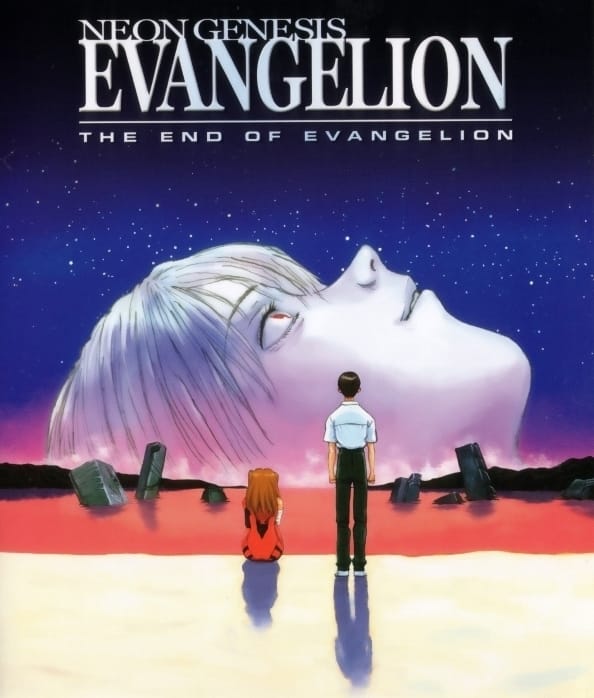
‘End of Evangelion’, on the other hand, was certainly more in keeping with the rest of episodes, and indeed succeeded in being even more over the top. It is saying something when one of the least outlandish scenes was of a German teenager ploughing her way through the Japanese army in a giant mecha while laughing manically and shouting, “Mama, I’ve finally found you”. While it was arguably created to make the ending clearer there I do not think that it really does tell the viewer much more. While we do see Human instrumentality being initiated, in what is certainly one of the most impressive scenes in all of Evangelion, we still do not understand any more about it than when Gendo simply said “Today is the day” in the original penultimate episode. Indeed ‘End’ has its own, much shorter, sequence taking place inside the minds of the protagonists which is even weirder than in the original. The main new element that I think ‘End of Evangelion’ brings to the table are the frankly short but touching conclusions to the character arcs of some of the more minor characters, including my favourites: Lieutenant Ibuki and Professor Fuyutsuki.
Do not take my assertion that ‘End’ is no better than the original to mean that I think it is any worse. Several fans have expressed the opinion that the two endings are really just different versions of the same thing: the original just being a part of the ‘dream’ sequence in ‘End’. I think that there is a lot to support this conclusion but even if you do not subscribe to this viewpoint it is still worth seeing the two together as probably the best endings Evangelion could have had. Sure there will always be people who are annoyed at the unanswered questions: what exactly was the mysterious organisation SEELE which was controlling NERV, where did the Angels come from, what exactly was Instrumentality? Would, however, the show have been better if these questions had been answered? I am reminded of the ending of ‘Ashes to Ashes’ which pretty much fully explained how the ‘Life on Mars’/’Ashes to Ashes’ universe worked. The ending was rightly praised and if its creators wanted to give a definitive answer to the questions the shows posed this was probably the best one they could give. Since the finale, however, I have always had a nagging feeling that something was lost, that the shows were better when the mystery was still alive.
Since then, probably due to the negative response towards these two endings, Hideki has decided to remake the entire show from scratch as a series of four films, the ‘Rebuild of Evangelion’, the first of which was released in 2007. This first film is basically a straight remake of the first few episodes of the anime with improved animation, though CGI was used a bit too often for my taste. It fixes a few of the anime’s problems, the English language dubbing of some of the minor character is far improved, but a lot of unnecessary cuts have been made: the opening scenes in particular feel a bit rushed. In conclusion, I cannot guarantee that you will like Evangelion but I certainly think it is worth a try: if you are anything like me you are in for a treat.

